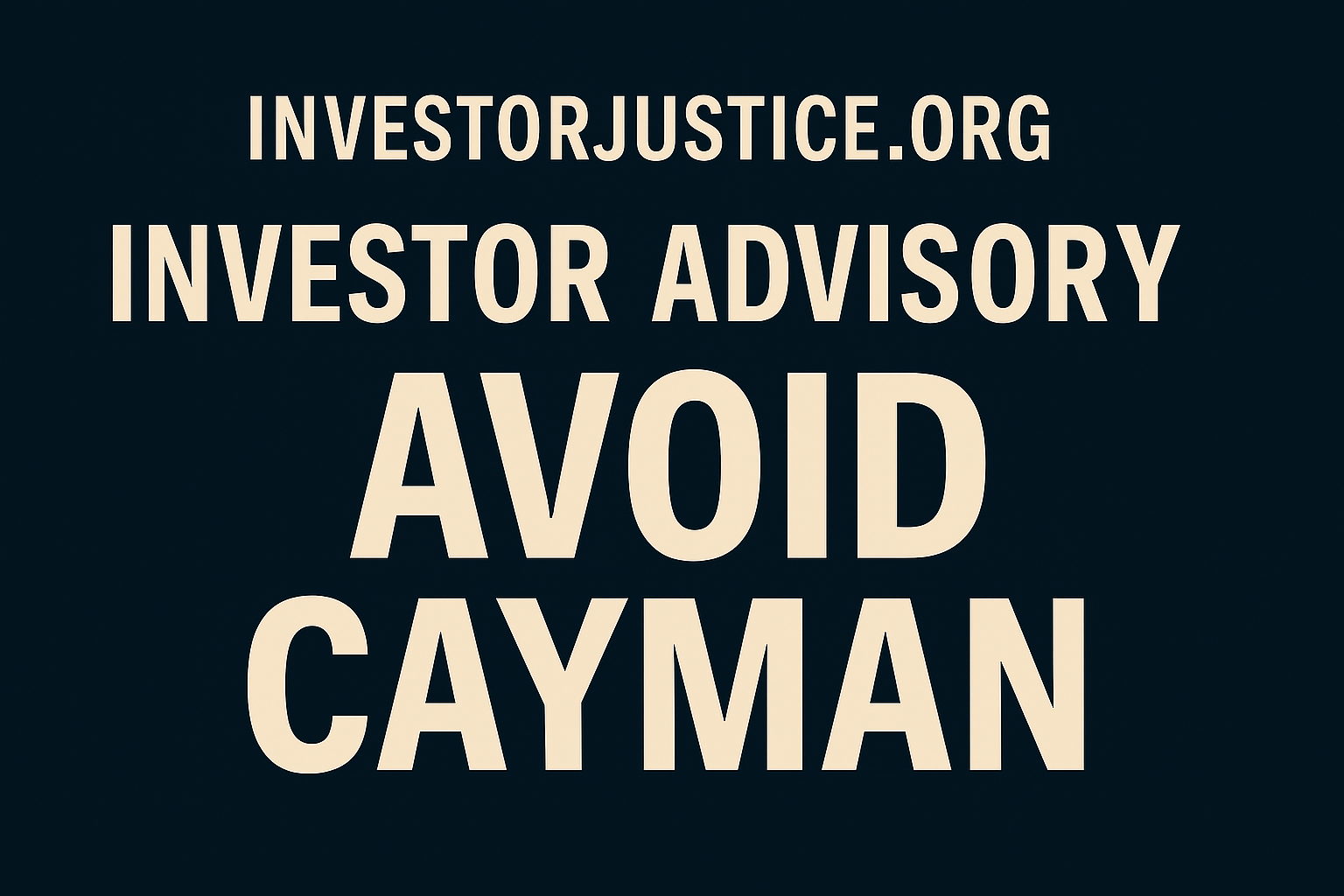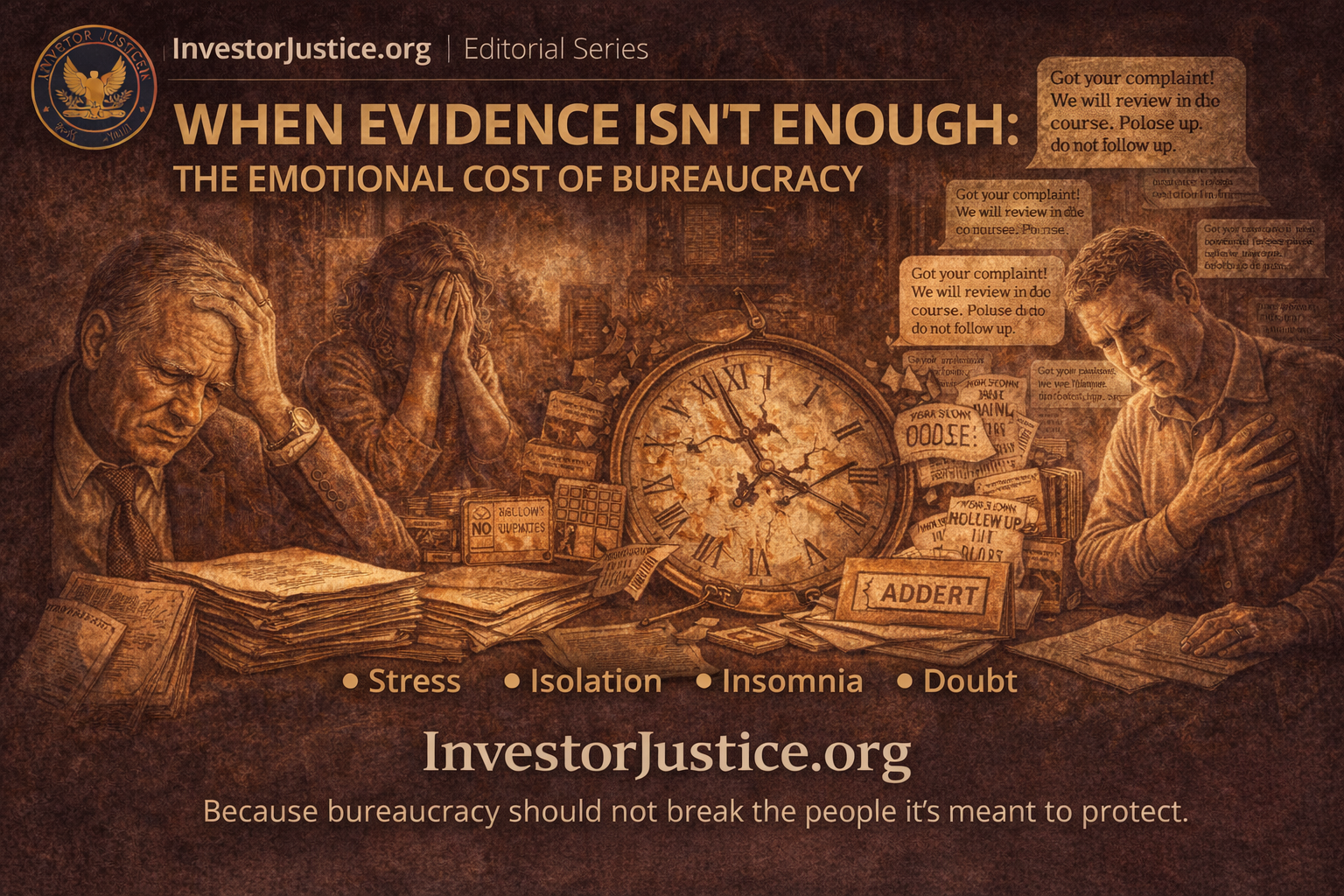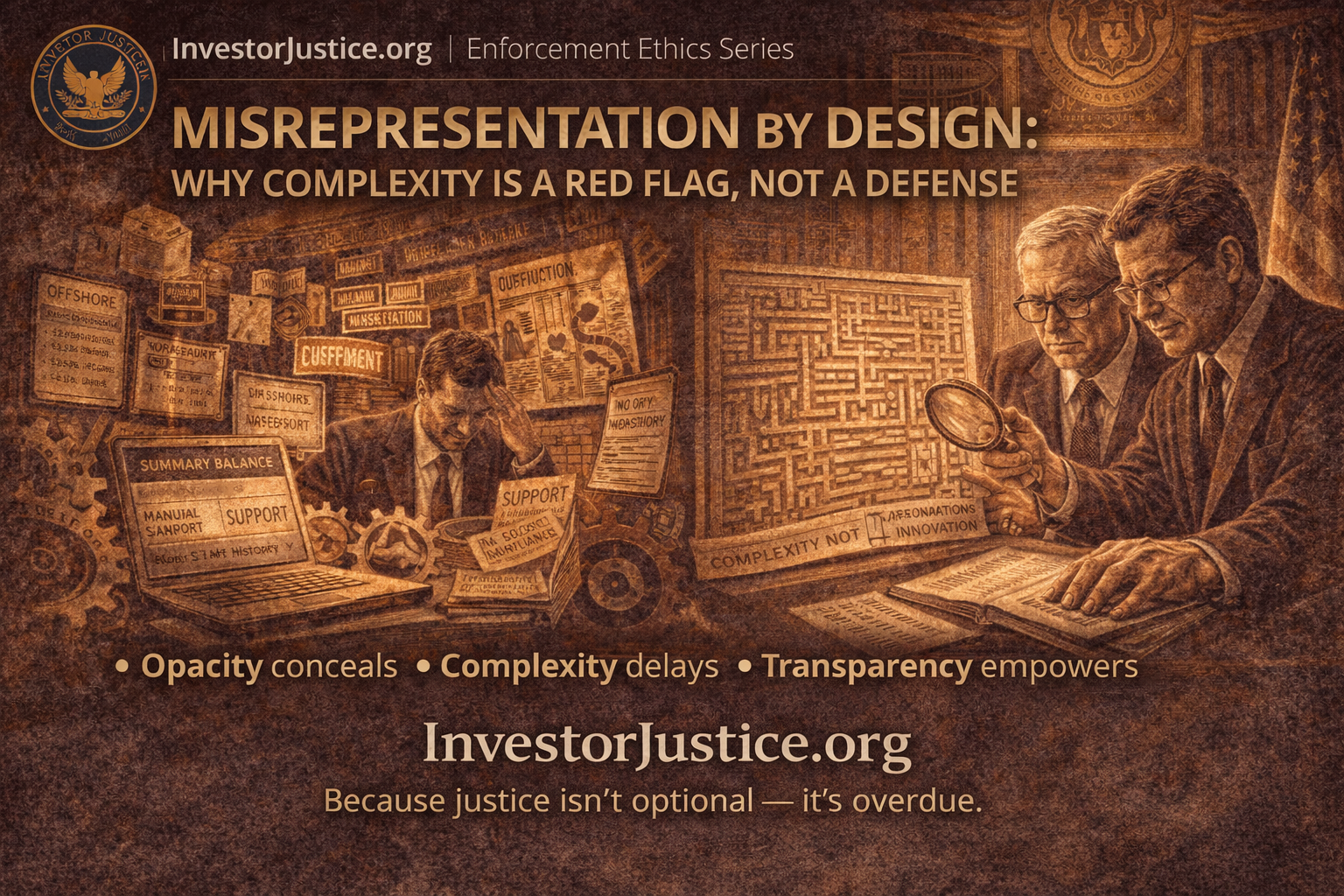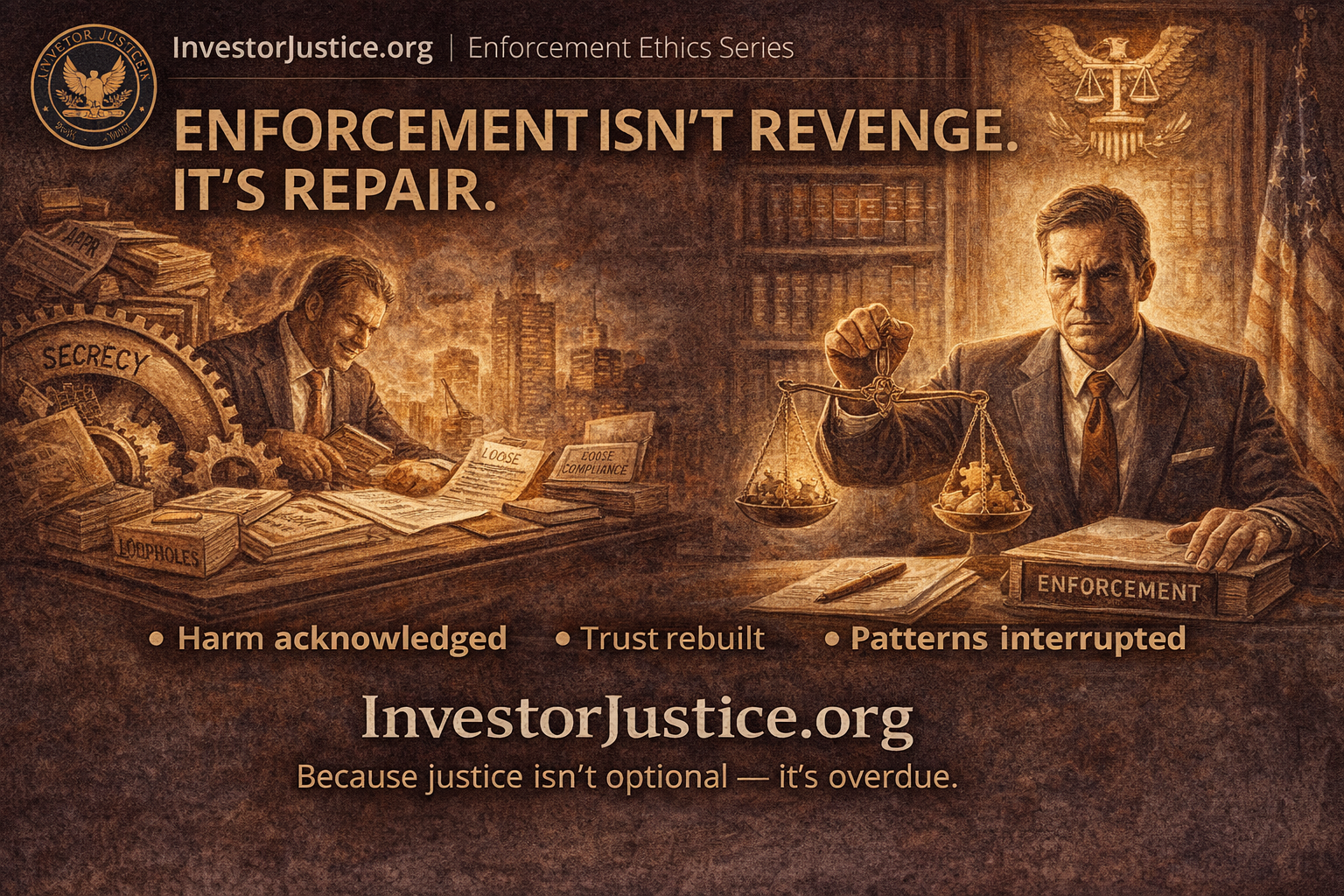Table of Contents
Effective Date: October 5, 2025
Switzerland is often associated with stability, discretion, and integrity in financial services.
But those assumptions can be misleading. For ordinary investors — especially those relying on transparency, regulatory recourse, or public accountability — Switzerland’s financial framework can create serious barriers to protection and redress.
This advisory highlights structural risks that investors should understand before trusting Swiss-based or Swiss-registered financial entities.
1. Regulatory tolerance for offshore structures
Switzerland allows companies to operate from Swiss soil while routing legal risk abroad.
Entities such as Nexo AG (Switzerland) conduct marketing and account management from within the country, yet the operative contracts point to offshore entities (e.g., Cayman Islands).
FINMA, Switzerland’s financial regulator, often permits these structures to persist under the label of “innovation” or “cross-border services.”
The result is jurisdictional evasion, companies appear Swiss when raising funds or clients, but prove unaccountable when things go wrong.
2. Limited transparency and public accountability
Unlike U.S. or EU systems, Switzerland provides no searchable public record of regulatory enforcement or civil judgments in financial cases.
- FINMA investigations are rarely disclosed.
- Administrative rulings are often confidential.
- Civil judgments can remain sealed or anonymized beyond public recognition.
This opacity prevents investors, journalists, and researchers from identifying patterns of misconduct or verifying whether similar complaints have been resolved.
3. Judicial protection gaps
The Swiss legal system’s emphasis on confidentiality and procedural formality often disadvantages retail investors.
- Access to evidence is limited; discovery procedures are narrow.
- Cases are conducted mostly in writing, making it difficult for self-represented or foreign claimants.
- Legal costs are front-loaded and substantial, discouraging smaller claims.
Even when wrongdoing is clear, investors can face years of delay with minimal public record of outcome.
4. FINMA’s “innovation” doctrine and its collateral damage
FINMA’s public messaging celebrates openness to fintech “experimentation.”
However, the agency’s approach often prioritizes industry flexibility over investor protection.
When innovative products harm consumers, FINMA rarely intervenes directly; instead, it points to contractual disclaimers and advises investors to “seek private remedies.”
This effectively outsources consumer protection to private litigation — a process inaccessible to most individual investors.
5. Comparison with peer jurisdictions
- United States: Enforcement actions and settlements are public and searchable (SEC, CFPB).
- European Union: Consumer and prudential regulators maintain transparent registers of sanctions and warnings.
- Switzerland: FINMA’s warning list is limited, infrequently updated, and omits firms that cease operation quietly.
The absence of transparency removes the deterrent effect that public accountability provides elsewhere.
6. Investor takeaway
Switzerland remains a global financial center — but for ordinary investors, that prestige does not equate to safety.
Regulatory opacity, jurisdictional loopholes, and procedural barriers can make it one of the most difficult places in the developed world to obtain justice after financial harm.
Investors should approach Swiss-based offerings with heightened caution, verify which entity actually holds their assets, and assume that Swiss registration alone does not guarantee protection.
Disclaimer: This advisory is published in the public interest. It does not constitute financial or legal advice. Investors should consult qualified professionals before making financial decisions.







